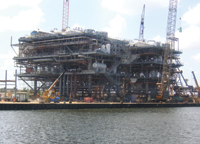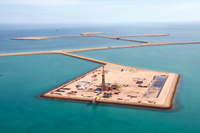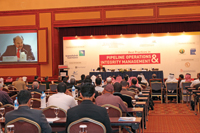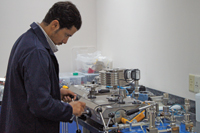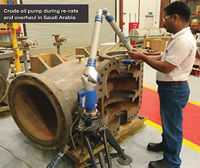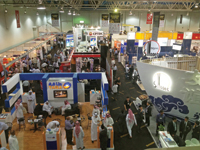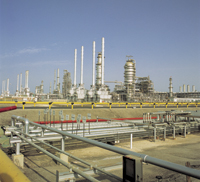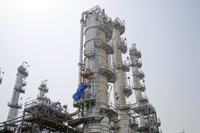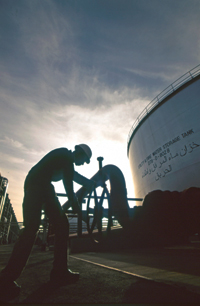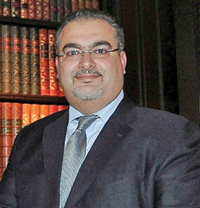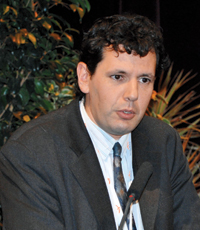
 Turki Al Faisal ... predicting more
Turki Al Faisal ... predicting more
ACCORDING to Riyadh-based Jadwa Investment, one of the world’s most important knowledge bases on Saudi Arabia’s economy, by 2020 the breakeven price will reach $118 per barrel.
At this point, the Saudi Arabia Monetary Agency’s cash reserves will begin to drain rapidly and the breakeven price will soar to $175 a barrel by 2025 and to over $300 by 2030.
And this cuts to the heart of the dilemma: In order to balance its budget in the future, Saudi Arabia will need to either drill more barrels and sell them for lower prices or drill fewer barrels – actively reducing global supply – and sell each at a higher price.
This is the crux of the debate between Saudi Oil Minister Ali Al Naimi and Prince Turki Al Faisal, chairman of the King Faisal Center for Research and Islamic Studies. Both officials understand the centrality of oil revenues to the survival of the House of Saud, but they differ on how best to come up with the money.
Al Faisal believes that Saudi Arabia should grow its production capacity in sync with the growth of the global economy. But Al Naimi, the person who will actually be charged with meeting this goal, prefers to keep capacity as it is and, if needed, even let it slide.
“If history is our guide, Al Naimi’s way will prevail. Since 1980, as the world economy grew by leaps and bounds, oil prices more than quadrupled in real terms. Yet Saudi Arabia, which sits atop of one fifth of the world’s economically recoverable reserves, has barely increased its production capacity,” says an analyst.
Another potential explanation for Naimi’s reluctance to grow capacity is that he knows what Sadad Al Husseini, the former head of exploration at Saudi Aramco, allegedly told the US consul general in Riyadh in 2007.
According to a leaked cable published by WikiLeaks, Husseini said that Saudi Arabia may have overstated its oil reserves, meaning that production at current levels is unsustainable.
If Husseini’s claim is true, it means there is only one way for the kingdom to make ends meet: Keep prices high by stalling the development of new capacity while adjusting the production of oil downward to offset any growth in supply emanating from the American oil boom, analysts say.
It also means, contrary to popular belief, that the current rise in US domestic production will have minimal impact on global crude prices, and hence on the price one pays for gasoline at the pump.
Oil is a fungible commodity and its prices are determined in the global market. If the US drills more, Saudi Arabia will simply drill less, keeping the supply/demand relationship tight and prices high.
The Faisal-Naimi dispute is not an academic one but one with potentially serious implications for the future of the world economy.
Whether or not Saudi Arabia likes it – and it almost certainly does not – the global energy market is about to get more competitive. In a competitive market, oil should be supplied by all producers roughly in accordance with their geological reserves and marginal costs.
There is something profoundly wrong when the US, which sits atop barely two per cent of global conventional oil reserves, produces more barrels per day than Saudi Arabia, a country with reserves ten times bigger.
Saudi Arabia presents itself as a responsible producer sensitive to the needs of consuming countries. These needs are surely growing. It would only be appropriate for the kingdom to grow its capacity in kind by making additional investments. Should Saudi Arabia decide not to do so, the US should use its vast reserves of cheap natural gas as a trump card.
Once cars and trucks sold in the US are capable of running on fuels made from natural gas and its products – whether compressed natural gas itself, liquid fuels such as methanol, or natural-gas derived electricity – the price of transportation fuel will be determined by free and diversified commodity markets, not decisions made in Riyadh.
A system in which oil consumers are forced to pay a rising “reasonable price” per barrel in order to fund Saudi Arabia’s ever-growing fiscal obligations is unsustainable, especially in a time when most cash-strapped countries are looking for ways to reduce their own fiscal obligations.
As the world moves gradually toward more reasonably priced methods of powering vehicles, the kingdom would do well to drill into the brains of its people – and that includes women – as vigorously as it drills into the ground.








































































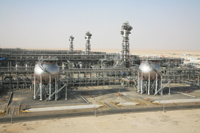
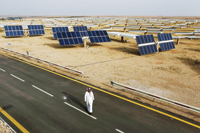


.jpg)
